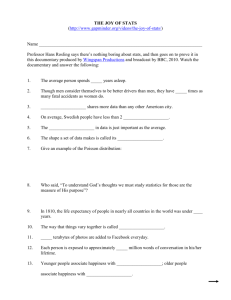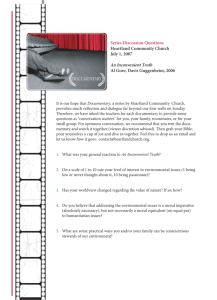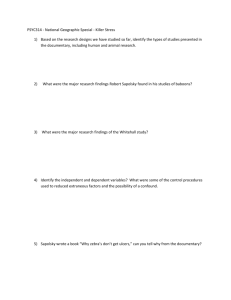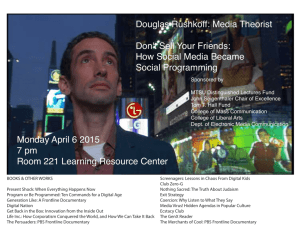Quality Assignment Mariah Smith Kettering College Abstract This
advertisement
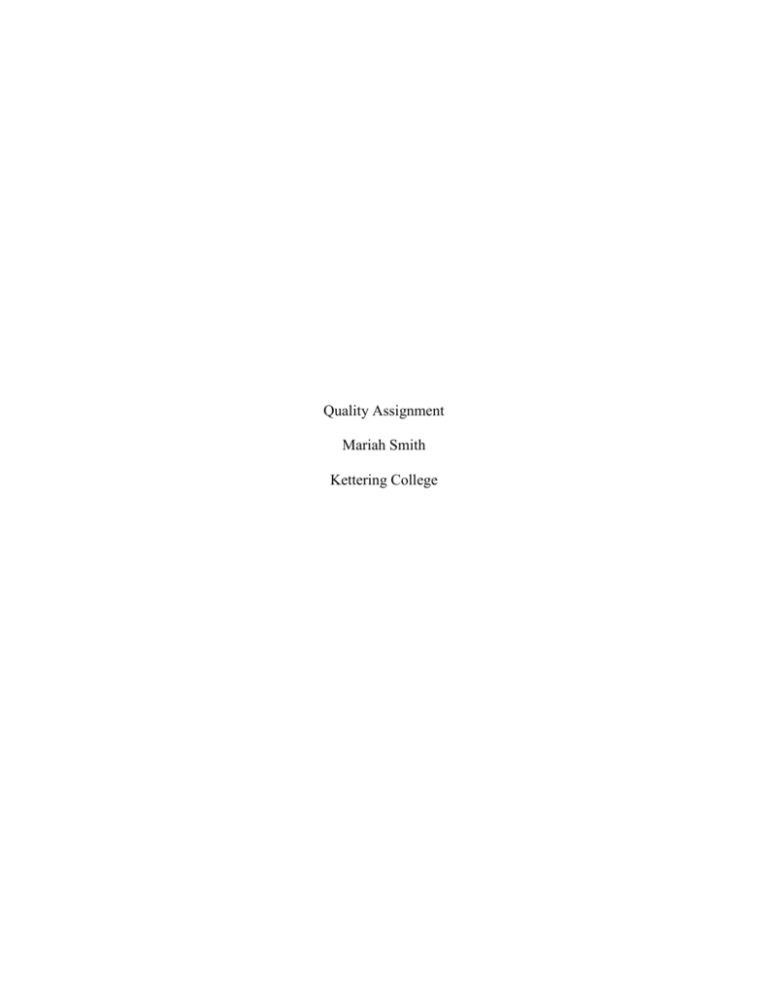
Quality Assignment Mariah Smith Kettering College Abstract This project developed in a healthcare research course is being used in the BSN Completion project to support the following learning outcome: Uses professional nursing judgment, informed by Christian principles, moral and ethical reasoning, professional nursing standards, and evidence-based practice to promote health, prevent disease, and provide safe, competent, whole-person nursing care across the continuum of health care. This paper was written after viewing a documentary titled “Chasing Zero” (Denham, 2010). This documentary explores the idea of human error in a health care setting and what we can do as a population to strive for “zero” mistakes. This supports the desired learning outcome because of the ethical and moral principles discussed. It also supports the patient care that is safe and competent and focused on nursing judgment and ethical principles. This paper explores this topic further. 1. As a healthcare provider, what is your initial response to this video? After watching this documentary, I felt amazed at how many mistakes are made on a daily basis in health care. While I’m sure I’ve made more mistakes than the few I can think of, none of them have been serious and all have been caught early on, i.e. forgetting to open the clamp to a secondary antibiotic infusion and only allowing the maintenance fluid to run. There are mistakes that are just common error such as that but the mistakes that are life-threatening are things that can be prevented regardless of human error. I hadn’t heard of this documentary so watching it really shocked me. I guess I was a little naïve to the fact that such terrible and fatal mistakes have been made. I understand the medication vials and similar packaging of supplies because that happens often. In the last 3 months our Zofran vials have changed colors 3 times. But regardless of manufacturing, we as nurses are held to a high standard. If we are putting ourselves in positions where we are working too much or not getting the rest we need, that is our fault. If we are not doing our double and triple checks on medications and treatments, that is our fault. The documentary is right when it says these can be prevented. 2. Reflect on the discussion forum in this module. You were asked to develop 2 policies that will increase consistency in care...while maintaining your responsibilities as a manager. Does this video change your thoughts on those policies? What techniques could you incorporate into your policy to ensure quality care and patient safety? Not necessarily. My policies were directed at safe staffing and the creation of an acuity tool that will better accommodate our patient assignments and staffing situations. I think this type of policy is vital when talking about what this documentary has to say. Safe staffing is a key factor in nurses making mistakes. When staffing is not optimal and patient care assignments are incredibly heavy, we do run the risk of making mistakes. While it is still our responsibility to prioritize our patient care and double and triple check our work, understaffing makes that difficult to do sometimes. Some techniques that could ensure quality care and patient safety would simply be to design a patient assignment tool based on acuity that will help each nurse to feel like they aren’t carrying the weight of the world for the next twelve hours. Too often does one nurse get a heavier assignment than another and/or too often does a unit stay understaffed regardless of what the patients require. 3. Is chasing zero realistic? What is occurring in practice and in research that supports your answer? What impact does leadership within an organization have on chasing zero? The idea of “chasing zero” is realistic in my eyes. When I think of that phrase and this documentary, I imagine that “chasing zero” doesn’t necessarily mean we are going to get to zero. Human error does occur like the documentary states, but these fatal errors are uncalled for. Maybe I’m just hard on myself as a nurse but I hold us to very high standards and I think that’s what this documentary is doing as well. It’s important to remember that mistakes will happen. It’s also important to remember our responsibility. Leadership can help support this by making sure the units are in optimal working conditions and ensuring that when a medication or supply may look the same that they are taking the measures to prevent an error from occurring. Especially those fatal ones. References Denham, C. (Producer). (2010). Chasing zero [Documentary]. United States: Summer Productions.
